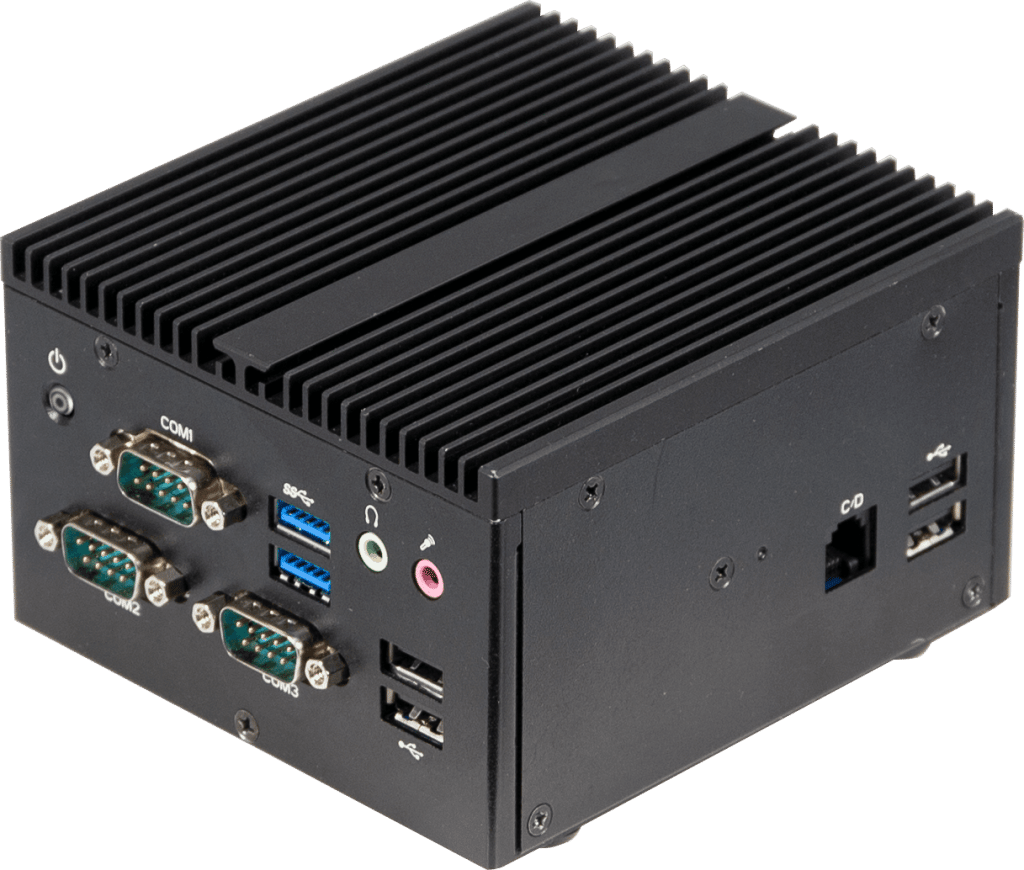
What Makes a PC Industrial?
Posted on February 15, 2023
The term, “Industrial PC”, gets thrown around a lot, but what does it even mean? Is an industrial PC actually different from a regular PC, or is it all just marketing?
Factor #1: Lifecycle
The biggest consideration when choosing a component for an industrial computer is its lifecycle. Regular computers are meant to be replaced (or at least upgraded) every couple of years or so.
Industrial systems, on the other hand, are designed to be able to function with the same components for a decade – or even more. This is because the cost of upgrading industrial systems is much greater, and profitability must also be taken into account.
This is why you will find chip manufacturers like Intel offering CPUs with a 10-year support cycle, called Long Term Servicing Channel (LTSC). These chips are meant for powering industrial computers and are only available to enterprise customers.
Factor #2: Temperature Range
Components meant for personal computers are designed with standard room temperature in mind. They perform the best in air-conditioned rooms and are often outfitted with noisy – and power-hungry – cooling fans.
But an industrial workspace cannot afford such luxuries. Air conditioning is rarely present, and often high temperatures prevail. Then there is the other side; computers deployed in medical and food industries often have to operate continually in sub-zero temperatures.
This is why components created for industrial PCs can operate in a wide temperature range. The systems are usually supported by fanless cooling, and can quietly work in both hot and cold temperatures without losing effectiveness.
Factor #3: Connectivity
Home computers are outfitted with a handful of the most popular connectivity options like USB and Wi-Fi to communicate with other devices. But in an industrial setting, these are not enough.
Many applications require support for legacy technologies like COM ports, apart from requiring these connections in larger quantities than a personal computer would need. An industrial automation system, for example, needs to interface with a variety of machines to be able to work.
To meet these needs, industrial computers are assembled on custom boards with a greater number of ports than usual, with extra ports being added in through extension cards. No regular PC can match this level of connectivity.
Factor #4: Durability
It is no secret that computers are somewhat delicate in nature. Physical impacts, jarring shocks, and even vibrations can damage or disrupt a regular computer.
But not a rugged PC. These systems are designed with special cases that can absorb physical shocks and negate vibrations, allowing the internal components to work uninterrupted.
Such rugged industrial computers can be deployed alongside machinery without any fears of vibrations damaging the system. They are also ideal for industries that require in-vehicle computers since the shock resistance makes them durable enough to survive constant motion as well.
Factor #5: Regulations
Industries like healthcare are subject to a number of rigorous standards to ensure safety and quality control. Regular computers are rarely designed to meet these regulations, making them unsuitable.
These standards regulate things like radiation shielding and power ratings, ensuring that the device can function in an industrial environment without facing critical failures. Not only does this improve the computer’s reliability, but also makes it safer to use.
When you buy an industrial PC, you are virtually guaranteed to have the system meet all necessary regulatory requirements. At Global American, for example, we make sure to produce computers that adhere to all mandated standards.
Is An Industrial PC Worth It?
On the surface, an industrial application is just another computing application. When you look deeper, however, you discover a number of unique requirements that a regular PC cannot meet.
Whether it is the temperature range, the longer lifecycle, the increased durability, or the multitude of connectivity options, industrial PCs score over regular computers in every respect.
No matter the intended application, an industrial PC is always the better choice, both financially and effectively. You can always get a rugged industrial system configured to your particular use case, getting the best possible hardware for the job.
